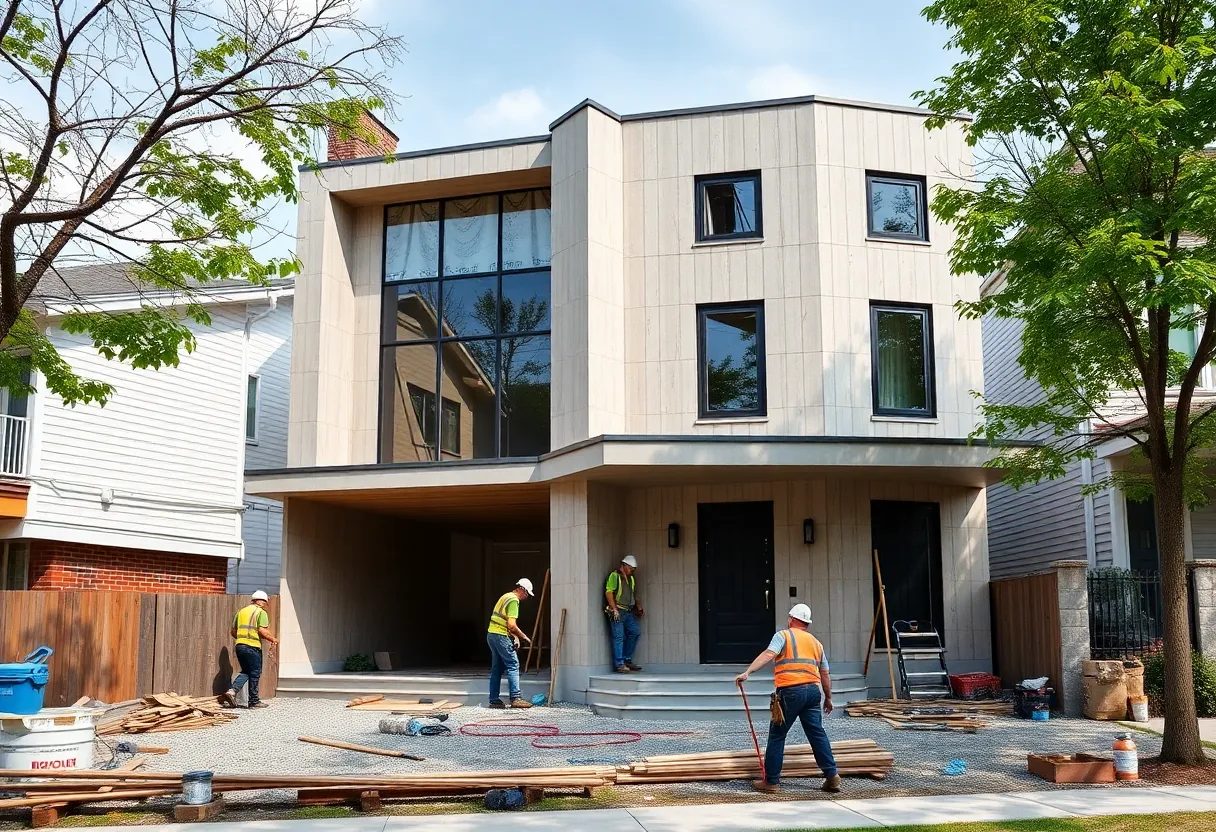News Summary
The American healthcare system’s inefficiencies and high costs are driving patients toward medical tourism, particularly in Thailand, where affordable, high-quality care is available. Issues such as lack of integrated care and extended wait times complicate treatment access in the U.S. Medical tourism offers an appealing alternative, with lower costs and expedited care. As the sector grows, the importance of value-based care in the U.S. healthcare system becomes increasingly evident. The rise of international healthcare options alongside technological advancements highlights the need for reform to ensure equitable access to care.
New York City — Examining Healthcare Disparities and the Rise of Medical Tourism
The American healthcare system is widely recognized for its fragmentation, inefficiencies, and high costs, prompting many patients to explore alternative options abroad. Recent discussions highlight how medical tourism in countries such as Thailand offers a compelling solution for individuals seeking affordable, high-quality care outside the United States.
Fragmented Care and Cost Transparency Issues in the U.S.
The complexity of America’s healthcare landscape often leads to significant challenges for patients, including long wait times, difficulty in navigating care options, and opaque pricing. One illustrative example involves patients pursuing treatment for knee pain, where clinics in major cities like New York often lack clear upfront costs and rapid access to specialists. This can result in prolonged waits, unnecessary diagnostic tests, or referrals that further delay treatment.
Medical Tourism as an Affordable Alternative
In contrast, patients heading abroad—particularly to countries such as Thailand—can access comprehensive care at substantially lower costs. For example, a patient seeking knee treatment may spend approximately USD 4,300 in Thailand, which typically covers consultations, MRI scans, lab work, and associated travel expenses. Such arrangements often provide timely and coordinated care, with patients receiving evaluations and treatments within days, before discovering they may not need invasive procedures like surgery.
The Case for Coordinated, Value-Based Care
Healthcare professionals emphasize that the American system often struggles with lack of integrated care, impacting patient outcomes, especially for complex cases. A hypothetical scenario illustrates this: a woman, named Mya Neehurtz, endures a multi-month journey involving multiple referrals, inefficient testing, and delays before finally receiving a knee replacement—reflecting systemic inefficiencies. Common issues include poor access to specialists, a lack of shared decision-making, and technological barriers preventing clear communication among providers.
To address these issues, value-based care has gained prominence. This approach focuses on delivering the right care at the right time while minimizing unnecessary procedures and costs. Various initiatives, including programs by the Centers for Medicare & Medicaid Services (CMS), aim to transition from volume-based to outcome-oriented healthcare, with the goal of reducing waste and improving quality.
Economic Impact of Healthcare Waste and Opportunities for Reform
An analysis published in 2019 estimated that as much as USD 935 billion is wasted annually in American healthcare due to unnecessary services, duplication, and administrative costs. Experts advocate for the development of integrated medical clinics, which would consolidate all necessary services under one roof—an approach successfully implemented in numerous other countries—improving efficiency and patient satisfaction.
Growing Market of Medical Tourism in Asia
In 2024, Thailand’s medical tourism sector generated approximately USD 31.5 billion, with an expected annual growth rate of about 13%. These numbers demonstrate the increasing attractiveness of the country’s healthcare system, which combines affordability and high standards. For example, total knee replacements in Thailand cost around USD 8,000, significantly less than the up to USD 50,000 typically charged in the U.S. thanks to modern infrastructure, well-trained medical staff, and collaborations with global health providers.
Expansion of Wellness Tourism and International Investment
Alongside medical procedures, the broader wellness tourism market reached USD 22.8 billion in 2024, reflecting a rising demand for health-focused travel experiences. Countries like India and Mexico are also key contributors to this growth, offering similar cost-effective healthcare options. Technological advancements such as telemedicine and digital health solutions are further transforming patient experiences, making international care more accessible and coordinated.
Challenges and Future Outlook
Despite its growth potential, medical tourism faces challenges such as regulatory hurdles, safety concerns, and logistical issues like travel restrictions or language barriers. Many governments are actively investing in healthcare infrastructure and international marketing efforts to attract foreign patients, recognizing the sector’s economic benefits.
Conclusion
The disparities in the American healthcare system continue to drive interest in alternative solutions abroad. With the increasing availability of cost-effective, high-quality care in countries like Thailand, along with innovations in digital health, medical tourism is poised to play a significant role in reshaping how patients access healthcare worldwide. Addressing the systemic issues within the U.S. healthcare system through integrated, value-based models remains critical to ensuring equitable and efficient care for future generations.
Deeper Dive: News & Info About This Topic
HERE Resources
Seaside Resorts in Georgian England: A Historical Transformation
Lagos, Nigeria – Persistent Brain Drain Threatens Healthcare System
US$1 Billion Expansion Planned for The Grand Ho Tram Resort
Additional Resources
- Medscape: Why Medical Tourism Can Make More Sense Than US Care
- Wikipedia: Medical Tourism
- Gmin Insights: Thailand Medical and Wellness Tourism Market
- Google Search: Medical Tourism Thailand
- Bangkok Post: Wellness Targeted as Key to Growth
- Encyclopedia Britannica: Health Care
- Travel and Tour World: Medical Tourism Destinations
- Google News: Medical Tourism
- Medical Tourism Magazine: Top Countries for Medical Tourism
- Business Insider: Medical Tourism and Cost Savings
Author: STAFF HERE WASHINGTON DC
The WASHINGTON DC STAFF WRITER represents the experienced team at HEREWashingtonDC.com, your go-to source for actionable local news and information in Washington, DC, and beyond. Specializing in "news you can use," we cover essential topics like product reviews for personal and business needs, local business directories, politics, real estate trends, neighborhood insights, and regional news affecting the area—with deep expertise drawn from years of dedicated reporting and strong community input, including local press releases and business updates. We deliver top reporting on high-value events such as the National Cherry Blossom Festival, Kennedy Center Honors, and the Washington Auto Show. Our coverage extends to key organizations like the Greater Washington Board of Trade and Destination DC, plus leading businesses in government contracting and technology that power the local economy such as Lockheed Martin and Amazon. As part of the broader HERE network, we provide comprehensive, credible insights into the dynamic landscape of the Washington metropolitan area.




